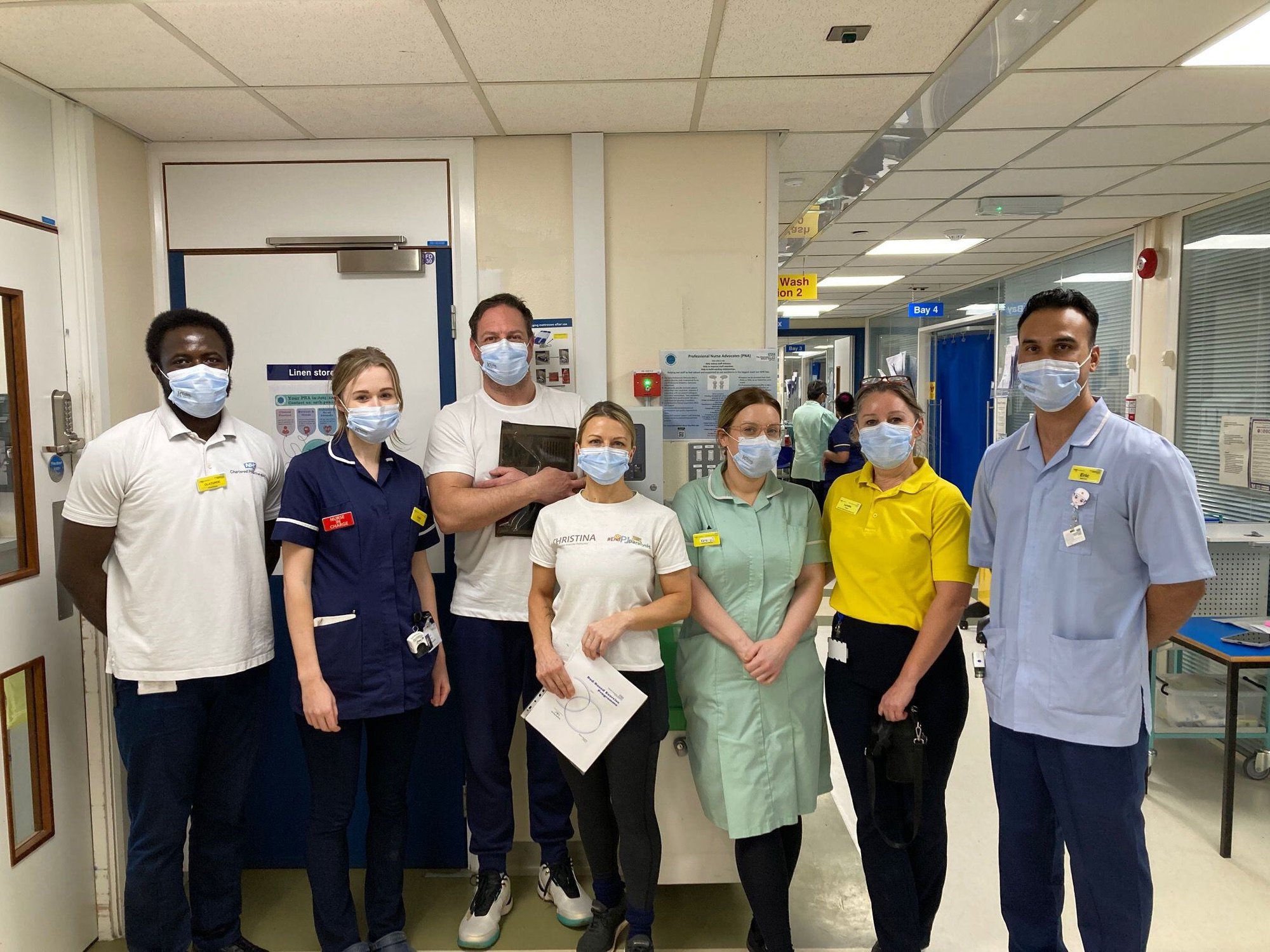Improving mobility and strength to reduce falls risk of hospital patients
2-MINUTE READ
Background
A pilot study aimed at improving mobility and strength to reduce the risk of falls among hospital patients was conducted at Royal Shrewsbury Hospital.
The three-month study, titled ‘Supporting Health Through Movement,’ took place on Ward 27 and focused on preventing hospital-associated deconditioning (HAD).
HAD occurs when patients remain inactive for extended periods, leading to a significant decline in mobility. Research suggests that just ten days of bed rest can result in muscle ageing equivalent to ten years for individuals aged 80 and over.
Staying active while recovering in the hospital can help reduce recovery time and hospital stays.
How Energize Got Involved
Energize STW collaborated with The Shrewsbury and Telford Hospital NHS Trust (SaTH) to conduct the pilot. Working alongside hospital teams, Energize provided expertise through Christina Morgan, Live Longer Better Manager, and specialist exercise instructor Iain Howard. They collaborated with Lynette Williams, Movement Matters/Reconditioning Lead at SaTH, and Clare Walsgrove, Quality Matron.

Christina Morgan and Iain Howard pictured with staff on Ward 27 at Royal Shrewsbury Hospital.
What Happened
The pilot involved tailored education and exercise sessions designed to counteract HAD and encourage movement among patients.
Sessions were delivered both in person and online to hospital staff, including nurses, healthcare assistants, and clerks. Staff were trained to integrate simple mobility exercises into patient care, including bed, chair, and standing exercises. Patients also received hand putty to improve dexterity and resistance bands to build strength.
Christina said: “It was quite a challenging pilot but provided a unique and beneficial learning experience for all involved.
“The initiative was received well on the ward by staff and patients. There is a desire by hospital staff to support patients to move more and be more active during their hospital stay, but there are multiple barriers which can prevent this happening.
“The pilot looked at implementing realistic and achievable actions that could be put in place on the ward, whilst encouraging conversations with both staff and patients. We provided bed, chair and standing exercises and patients were also provided with hand putty to strengthen their dexterity along with resistance bands to promote strength.”
The Impact
The initiative was well received by both staff and patients on the ward. Hospital staff expressed a strong desire to support patient mobility but highlighted the multiple challenges that can hinder such efforts.
The pilot provided valuable insights into overcoming these barriers and implementing practical strategies to encourage movement.
Clare Walsgrove, Quality Matron, emphasised the importance of educating colleagues to play their part in improving patient mobility. Clare said: “We are doing a lot of work to improve the mobility of patients whilst they are in hospital to support their recovery, and it was beneficial to work alongside the Energize team, looking at how our patients can be encouraged to move more and further educate all our colleagues on how they can play their part.”
Paula Gardner, Interim Chief Nursing Officer, also highlighted that maintaining activity during hospital stays can significantly aid recovery and reduce the likelihood of readmission. Paula said: “We all know how important it is for patients to stay as active as possible as it helps with their recovery and when they go home or into the community if they learn from what they have been shown in hospital it means they are less likely to be readmitted."
Next Steps
Energize will be sharing the results with SaTH and making recommendations for implementation.


